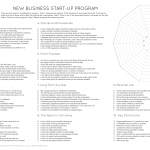5 Critical Considerations Before Moving Your Real Estate Team
Transitioning a real estate team to a new brokerage is a complex strategic decision that carries significant operational and cultural risks. Even when the offer appears compelling—better compensation, perks, or incentives—the timing and execution demand rigorous evaluation. This article distills five essential factors every leader must assess before committing to a brokerage change.
Successful team leaders know that legacy and momentum are fragile. Approaching the move with measured preparation can preserve both. Below, we outline the vital dimensions of branding, technology, culture, transition logistics, and operational disruption to guide your decision-making.
1. Is Your Team Identified Primarily by Your Own Branding?
One of the foundational questions before any team move is this: Does the marketplace recognize your team by your distinct brand or by the brokerage’s brand?
If clients, prospects, and consumers primarily associate your team with the brokerage or franchise brand, it is a clear sign that moving now may undermine your equity. Over many years, some leaders become deeply linked with their brokerage brand, making client transitions fragile. You need your team’s brand to occupy the primary position in the minds of those you serve, with the brokerage as a distant secondary.
To assess this, consider reaching out confidentially to trusted past clients and asking for their candid perspective on your potential move. If they conflate your identity with your current brokerage, the impact of a move on your client retention could be substantial.
2. Are You Anchored with Your Own Tech Stack?
Brokerages today commonly offer custom technology platforms, including CRM systems, websites, transaction management, and marketing platforms. While these may appear comprehensive, they often share similar capabilities under different branding.
Leaders with mature teams understand the value of owning their tech infrastructure. Transitioning your team’s CRM and related tools invites data loss, operational delays, and requires retraining time that can degrade productivity. Negotiating ownership or reimbursement for your preferred technology can mitigate these risks.
Being tethered to a brokerage’s proprietary system reduces flexibility and bargaining power. Establishing and anchoring on your own toolset preserves operational continuity through the move, minimizing downtime and protecting business intelligence.
3. Are You Confident in the Strength of Your Team’s Culture?
Team culture is the connective tissue that supports retention, loyalty, and resilience, especially during times of upheaval. Relocations invariably test the strength of internal culture, exposing any latent fractures.
Expect some attrition. Some team members may choose to remain with the original brokerage for personal or comfort reasons. Meanwhile, the former brokerage will aggressively attempt to “retain” or recruit agents. There is no sentimentality in real estate recruiting—expect targeted outreach.
Your cultural foundation often determines whether agents will follow leadership into the new environment or entertain competing offers. Prioritize transparent communication, reinforce your team values, and leverage your history of loyalty to withstand external recruiting pressures.
4. Have You Prepared a Thorough Team Transition Plan?
Successful team moves are anchored in meticulous, multi-layered planning. Underestimate the time and cost of transition at your peril; in reality, the process often requires twice the resources you anticipate.
Every team member must have a detailed individual plan covering business cards, brokerage access, system logins, keys, property access, and client communication protocols.
Ensure that your team administrator compiles a comprehensive checklist tracking every logistical element. Expect unforeseen challenges—the most resilient teams have contingency plans for every anticipated bump in the road.
5. Are You Willing to Accept Temporary Setbacks for Long-Term Gain?
Even the best-planned moves incur “breakage.” Disruption to momentum, workflow, and client handoffs is inevitable. Larger teams magnify the scope of disruption and the challenges of reestablishing rhythms.
Leaders must embrace this reality: stepping forward sometimes requires a measured step back. Planning for and accepting temporary performance dips will enable sustainable growth post-transition.
The difference between a strategic move and a misstep is anticipation and acceptance of these unavoidable disruptions.
A Parting Thought
Relocating your team to a new brokerage has the potential to accelerate growth and opportunity—but equally, it can fracture momentum and erode hard-earned equity. Decisions driven by immediate perks or incentives without a comprehensive strategic lens risk legacy and long-term success.
Approach the prospect soberly and deliberately, weighing the five considerations above as your initial framework. For further insight into team structures that optimize scalability and resilience, refer to our detailed Ultimate Real Estate Team Structure blueprint.
Our advisory experience confirms that knowledge and strategy remain paramount in navigating brokerage transitions.





